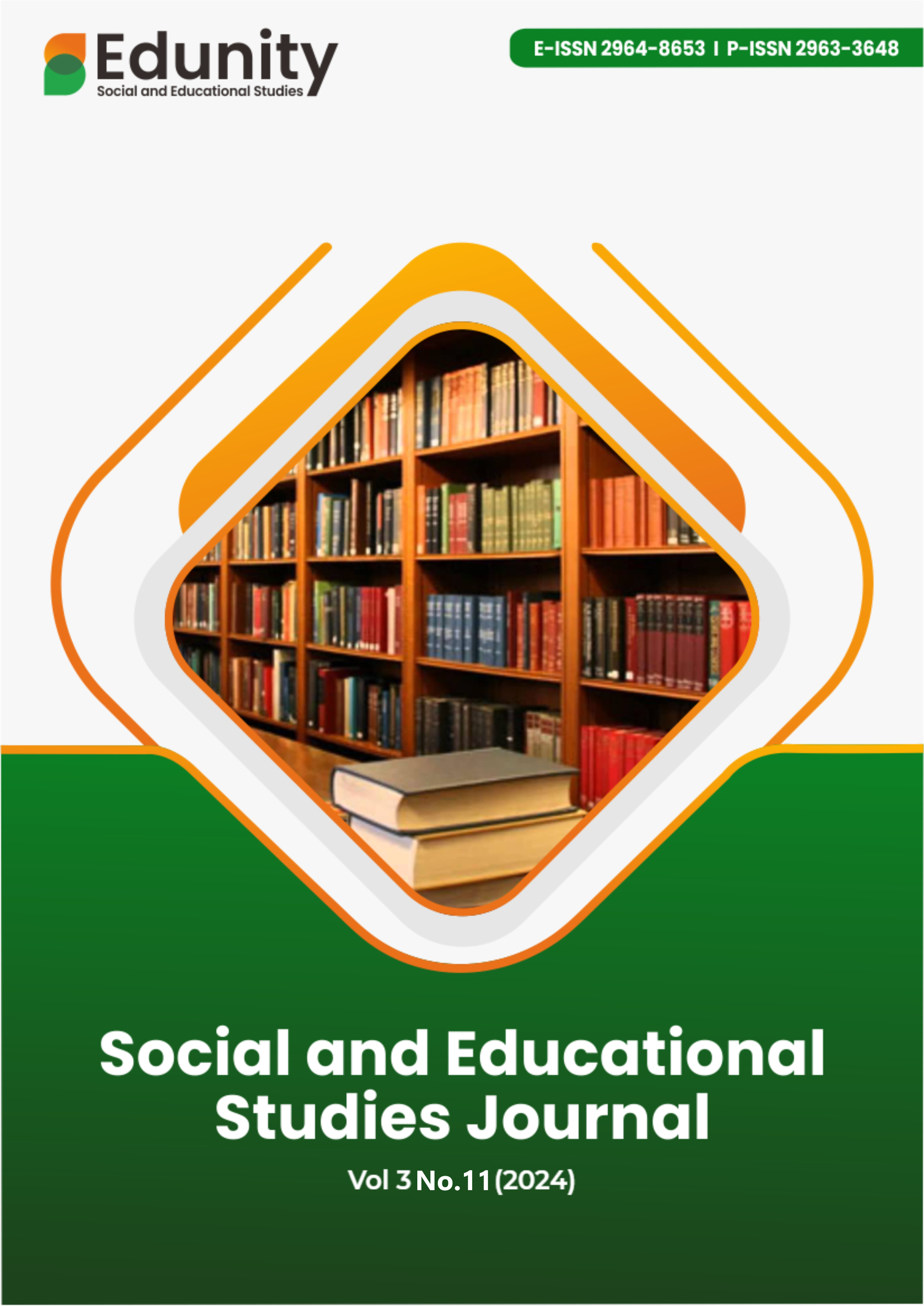Dynamics of Non-Litigation Law Resolution in the Juvenile Criminal Justice System
DOI:
https://doi.org/10.57096/edunity.v3i11.332Keywords:
Diversion, Juvenile Criminal Justice System, Non-Litigation ResolutionAbstract
Handling children in conflict with the law in the juvenile criminal justice system
requires a more humane and restorative approach. The purpose of this study is to
analyze the application of diversion in the juvenile criminal justice system and identify
the challenges faced. This research uses normative legal research method with statutory
approach and case analysis. The results show that although diversion has been
regulated in the law, its implementation still faces various obstacles, such as lack of
understanding among law enforcers, community stigma towards children, and
resistance from the justice system itself. Efforts to overcome these obstacles include
education and socialization to the community as well as training for law enforcers. This
research underscores the importance of support from all relevant parties, including law
enforcement, the community, and the child family, to ensure the success of the
diversion process. Better knowledge of the purpose and benefits of diversion can
reduce stigma and improve child rehabilitation. Diversion as an alternative to out-ofcourt settlement in the juvenile criminal justice system has great potential to protect
children from the negative impacts of formal legal proceedings. However, challenges
need to be overcome through education, training and community empowerment.
Support from families and communities is critical to the successful rehabilitation and
social reintegration of children in conflict with the law. With the right approach, it is
expected that the implementation of diversion can be more effective in achieving
restorative justice for children.
References
Bhadra, S. (2022). Psychosocial support for protection of children in disasters. In
Child Safety, Welfare and Well-being: Issues and Challenges (pp. 453–482).
Springer.
Garghate, R., & Choudhari, S. (2024). Health policies and guidelines to promote,
protect and support early childhood development: A narrative review.
Journal of Family Medicine and Primary Care, 13(9), 3502–3508.
Gavrielides, T. (2020). Restorative justice theory and practice: Addressing the
discrepancy. RJ4All Publications.
Hidaya, W. A. (2019). Penerapan Diversi Dalam Sistem Peradilan Pidana Anak.
Justisi, 5(2), 84–96.
Masten, A. S., & Barnes, A. J. (2018). Resilience in children: Developmental
perspectives. Children, 5(7), 98.
Mazerolle, L., Antrobus, E., Cardwell, S. M., Piquero, A. R., & Bennett, S. (2021).
Harmonizing legal socialization to reduce antisocial behavior: Results from
a randomized field trial of truanting young people. Justice Quarterly, 38(1),
–179.
Moyo, A. (2014). Balancing child participation rights, parental responsibility and state
intervention in medical and reproductive decision-making under South African
law.
Sciences, N. A. of, Children, B. on, Youth, Mental, C. on F. H., Children, B. D.
A., & Youth. (2019). Fostering healthy mental, emotional, and behavioral
development in children and youth: A national agenda.
Smith, K. A., & Samuels, A. E. (2021). A scoping review of parental roles in
rehabilitation interventions for children with developmental delay,
disability, or long-term health condition. Research in Developmental
Disabilities, 111, 103887.
Tye-Murray, N. (2022). Foundations of aural rehabilitation: Children, adults, and
their family members. Plural Publishing.
Tyler, T. R., & Trinkner, R. (2017). Why children follow rules: Legal socialization and
the development of legitimacy. Oxford University Press.
Vadivelan, K., Sekar, P., Sruthi, S. S., & Gopichandran, V. (2020). Burden of
caregivers of children with cerebral palsy: an intersectional analysis of
gender, poverty, stigma, and public policy. BMC Public Health, 20, 1–8.
Van Ness, D. W., Strong, K. H., Derby, J., & Parker, L. L. (2022). Restoring justice:
An introduction to restorative justice. Routledge.
Westman, J. C., & Westman, J. C. (2019). The Rights of Parents. Dealing with
Child Abuse and Neglect as Public Health Problems: Prevention and the Role of
Juvenile Ageism, 121–142.
Wilson, D. B., Olaghere, A., & Kimbrell, C. S. (2018). Effectiveness of restorative
justice principles in juvenile justice: A meta-analysis. Inter-university
Consortium for Political and Social Research.

Downloads
Published
Issue
Section
License
Copyright (c) 2024 Kimico Margaretha Tjhia, Suparno Suparno

This work is licensed under a Creative Commons Attribution-ShareAlike 4.0 International License.
Authors who publish with this journal agree to the following terms:
- Authors retain copyright and grant the journal right of first publication with the work simultaneously licensed under aCreative Commons Attribution-ShareAlike 4.0 International (CC-BY-SA). that allows others to share the work with an acknowledgement of the work's authorship and initial publication in this journal.
- Authors are able to enter into separate, additional contractual arrangements for the non-exclusive distribution of the journal's published version of the work (e.g., post it to an institutional repository or publish it in a book), with an acknowledgement of its initial publication in this journal.
- Authors are permitted and encouraged to post their work online (e.g., in institutional repositories or on their website) prior to and during the submission process, as it can lead to productive exchanges, as well as earlier and greater citation of published work.






